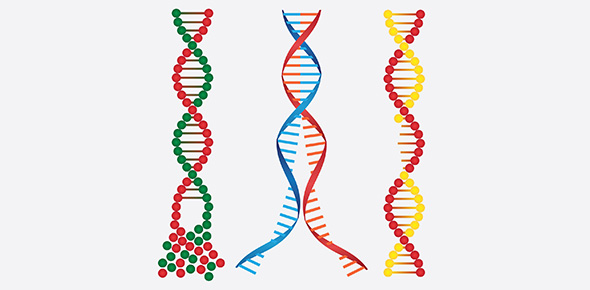Related Flashcards
Related Topics
Cards In This Set
| Front | Back |
|
List the Hierarchy of Biological Organization.
|
Atoms, Molecules, Macromolecules, Organelles, Cells, Tissues, Organs, Organ Systems, Organisms, Populations, Community, Ecosystem, Biomes, Biosphere.
|
|
Energy
|
The capacity to do work
|
|
Inheritance
|
Acquisition of traits by transmission of DNA from parent to offspring
|
|
Prokaryotic cells
|
A type of cell lacking a membrane-enclosed nucleus and membrane-enclosed organelles. Organisms with prokaryotic cells (bacteria and archaea) are called prokaryotes.
|
|
Eukaryotic Cells
|
A type of cell with a membrane-enclosed nucleus and membrane-enclosed organelles. Organisms with eukaryotic cells (protists, plants, fungi, and animals) are called eukaryotes.
|
|
Emergent property
|
New properties that arise with each step upward in the hierarchy of life, owing to the arrangement and interactions of parts as complexity increases. Each level of biological organization has emergent properties.
|
|
Homeostasis
|
The steady-state physiological condition of the body.
|
|
A system for grouping organisms
|
The three-domain system
|
|
The four kingdoms within the domain Eukarya
|
Protists, plantae, Fungi, animalia.
|
|
Prokaryotic domains and eukaryotic domains
|
Prokaryotic- Bacteria and Archaea, Eukaryotic- Eukarya
|
|
Hierarchy of taxonomic groups within each of the domains
|
Domain, Kingdom, phylum, class, order, family, genus, species.
|
|
Taxonomy
|
A scientific discipline concerned with naming and classifying the diverse forms of life. The branch of biology concerned with naming and classifying the diverse forms of life. Formalized process to cutdown confusion.
|
|
Evolution
|
Central theme in biologythe ability to evolve is built into organismsorganisms within a species are variable( some are better suited to survival) Variability comes from the inherited genes. More good genes survive and therefore the population changes.
|
|
Scientific method
|
Usually proceeds the process of scientific discovery. ObservationHypothesisExperimentConclusion
|
|
Theory
|
An explanation of natural events that is based on a LARGE number of observations and/or experiments.
|






